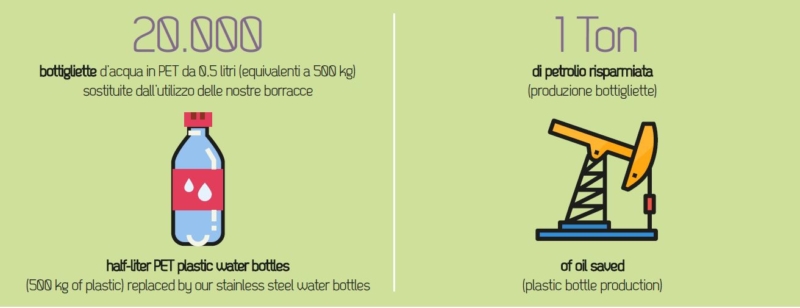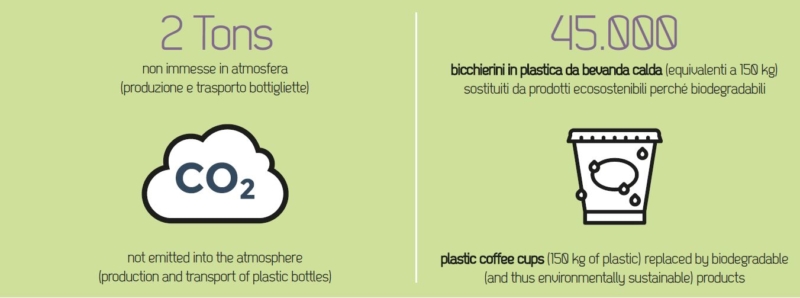The Cavagna Group has started the 2020 by launching an environmentally friendly initiative aimed at reducing the company’s use of plastic. This project reaches a turning point today with the arrival of water coolers at our Italian Headquarters.
We at the Cavagna Group believe that each of us can help fight the excessive use of plastic. Indeed, plastic presents numerous recycling and disposal challenges throughout the waste management chain. We have launched the plastic free initiative at our headquarters in Ponte San Marco (Brescia): now the plan is to gradually expand it to our other locations.
We are going to gradually eliminate our use of plastic.
The initiative launched aims at significantly reducing our use of plastic at our offices and plants. The first step was to replace plastic water bottles with water coolers (which have chilled/unchilled still water and sparkling water) and to give each employee his/her own stainless steel water bottle. Moreover, we have increased the number of water pitchers in our meeting rooms, so that also our guests can come to know our plastic-free philosophy.
Another step is replacing plastic cups, coffee cups and stirrers with biodegradable compostable products.
We have set some lofty goals for 2020: we want to eliminate over 20,000 water bottles, which corresponds to over 500 kg of plastic. As the initiative expands, we aim to become even more sustainable not just as an industrial group but also as individuals. And we can further reduce our carbon footprint in the process.


A STAINLESS STEEL WATER BOTTLE FOR EACH EMPLOYEE!
We decided to create our own, Cavagna-branded, stainless steel water bottle. It features the unequivocal motto “Reduce – Reuse – Refill” together with the Cavagna logo and the Group’s commemorative 70th anniversary logo.
A RESPONSIBLE CHOICE AS WE LOOK TOWARDS THE FUTURE
The European Union has set out clear guidelines on circular economies and the reduction of plastic products. Indeed, Directive (EU) 2019/904 promotes an approach that gives priority to sustainable, reusable products and systems rather than to single-use products. It is our duty as a civilization to reduce the manufacturing of plastics made from fossil fuels—we especially owe it to future generations. And it will help us to achieve “Goal 12” of the 2030 Agenda for Sustainable Development. According to data published by the European Commission, this new EU directive will lead to significant environmental and economic benefits: for example, it will avoid the emission of 3.5 million tons of CO2 equivalent, avoid environmental damage that would cost the equivalent of €22 billion by 2030, and save consumers a projected €6.5 billion.


